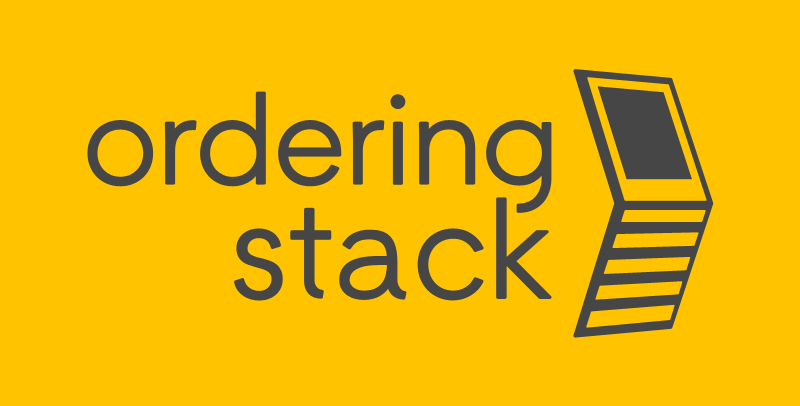Automation of Burger King Restaurants: Implementation of Self-Service Kiosks
Published: January 23, 2024
Automation of Burger King Restaurants: Implementation of Self-Service Kiosks
Within three months of implementing the project, the Ordering Stack team successfully executed a comprehensive digital transformation, including the installation of digital kiosks, resulting in increased profits within the client's ecosystem.
According to data collected by MadMobile, the revenue from online food ordering is projected to reach up to $220 billion in 2023, accounting for approximately 40% of all restaurant sales. One notable example of a renowned restaurant chain that recognizes the importance of digital transformation is Burger King.
The Client
Burger King is indeed one of the largest global fast-food restaurant brands, known for its burgers and sandwiches. Burger King has a significant presence worldwide, with its restaurants operating in nearly all countries. As of the end of 2022, the company boasted approximately 18,700 locations globally. Its annual revenue stands at a substantial $1.9 billion, serving a staggering 15.7 million customers each day. This reflects the brand’s popularity and widespread customer base.
The company operates in two models – with the owned restaurants and a network of franchised ones, run by independent entrepreneurs and coordinated by the franchise operator on a particular market.
The challenge
Due to the evolving business landscape in Polish restaurants and franchise operations, the BK SEE company, recently bought by Rex Capital recognized the need to rapidly digitize their establishments. The implementation of digital kiosks and an online ordering system became a crucial step toward achieving this objective. However, it was a challenge that could not be taken lightly.
This was the pivotal moment when the team at Ordering Stack stepped in to change the game.
Our work
OrderingStack team had to basically build from scratch the digital capabilities of Burger King restaurants. It was possible by following the steps as below:
- Integration with POS system
- System integration and configuration
- UX adjustments
- Oracle Simphony implementation
- Implementing kiosks in all locales
Integration with POS system:
The Burger King restaurants utilized the SICOM POS system. Thanks to the exceptional flexibility and adaptability of the Ordering Stack system, integrating with SICOM POS was not a significant challenge. Our team successfully delivered the desired integration, resulting in a seamless and functioning system.
System integration and configuration:
While the Ordering Stack system is highly user-friendly, our team provided support to the client team in integrating various data elements, such as menus, images, and products. Additionally, we implemented upsell techniques, including limited-time offers and pop-up windows, with the guidance of Ordering Stack experts.
To provide the company with the best ordering value boosters, the Ordering Stack team has delivered the tools to promote both value meals and combo meals. Both options are interesting for the target group as sold for a more affordable price, yet still give the company a higher margin.
UX Adjustments:
To maintain consistent brand identity across channels, the Ordering Stack team designed and implemented a customized user interface (UI) for Burger King’s kiosks. This tailored skin aligns with the brand’s identity as seen in their online ordering system and website.
The skin was specifically designed to be compatible with the new generation software of kiosks, which offers improved speed, smoother operation, and enhanced reliability compared to previous versions. Furthermore, the overall performance of the software has significantly improved compared to the previous version, making it a more advantageous business choice.
Kiosk implementation:
The implementation of digital kiosks was the final and highly impactful stage of the digital transformation. Burger King enlisted M4B, Ordering Stack’s hardware partner, to provide and install the digital kiosks. This implementation was carried out in conjunction with previous changes and upgrades, including the online ordering system, POS system, and updated layouts.
The effect
Burger King has witnessed the immediate benefits of implementing new technologies.
- The restaurants have started to work in a more modern and easier environment. This enabled the employees to better care about the clients.
- The implementation ended within three months starting from signing the contract and ending with the implementation of the last kiosk – all between December 2022 and April 2023
- The value of orders done with Digital Kiosks are significantly higher than ones done in other ordering channels. Also, over 50% of all orders are done using kiosks. Considering that, kiosks prove to be a highly profitable channel, with a low cost of maintenance (no paycheck for staff, no commissions etc) and increasing income provided.
Summary:
The case of Burger King’s digital transformation carried out in collaboration with Ordering Stack, exemplifies how the implementation of new technology can yield swift and impactful results for a company.
With the expertise and support of Ordering Stack, the implementation process took a mere three months, resulting in the successful launch of a new, highly effective, and profitable channel for the restaurant chain. This highlights the importance of partnering with experienced professionals to expedite the adoption of new technologies and capitalize on their benefits in a timely manner.
But that’s not all!
The cooperation was so fruitful and mutually beneficial that BK SEE company decided to invite Ordering Stack to the restaurants launched in Romania and the new restaurant in Poland. The key difference was in the POS system.
In both cases, the restaurants were using Oracle Simphony POS, a sophisticated and modern system used by the largest players in the world. This was done during additional two months of cooperation.
By the end of the working period, there were Ordering Stack-powered kiosks in 22 Burger King restaurants in Poland and two more in Romania, making Ordering Stack a dominant software in BK SEE’s portfolio.


